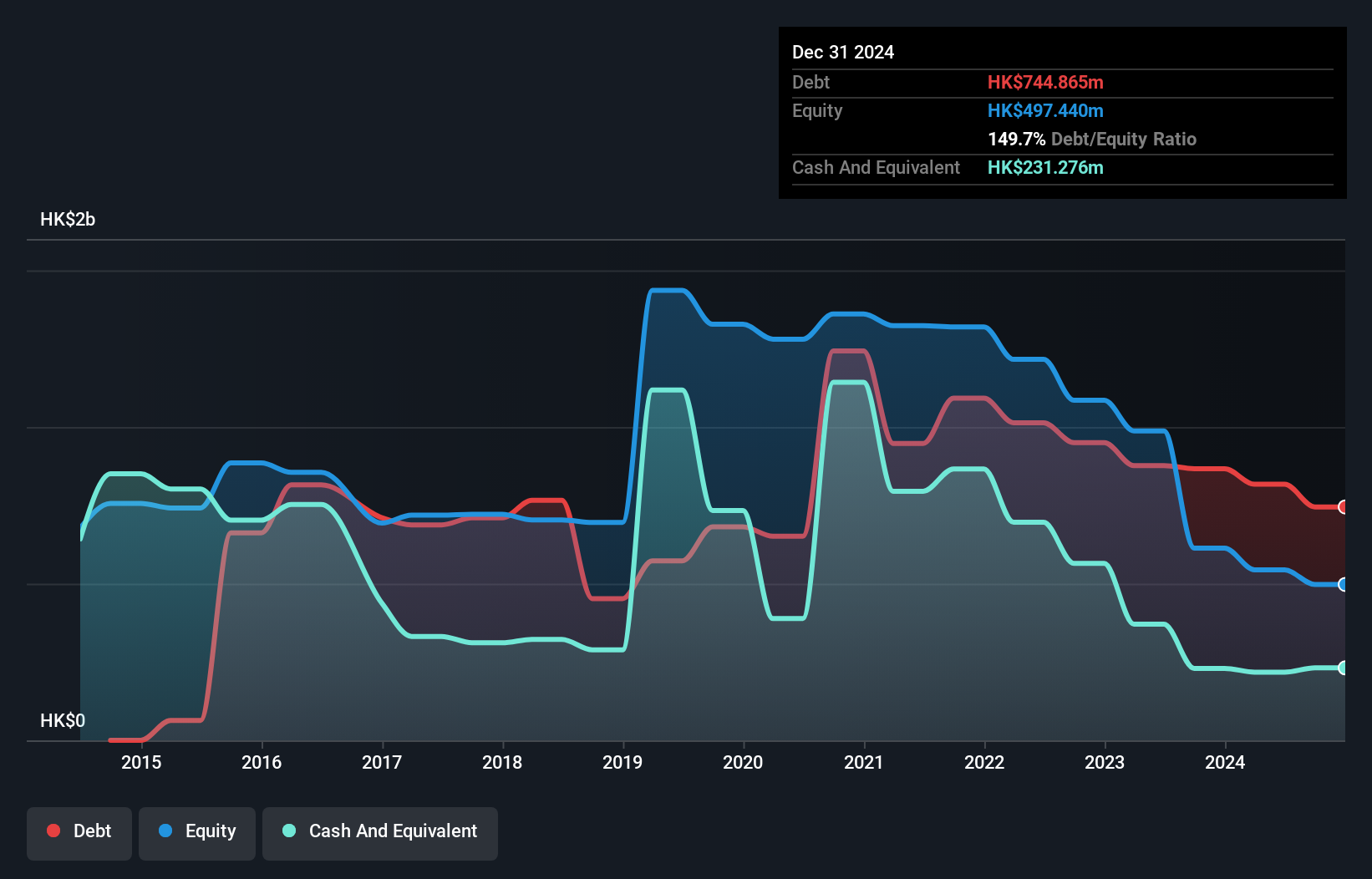Is Universal Technologies Holdings (HKG:1026) Using Debt In A Risky Way?
Some say volatility, rather than debt, is the best way to think about risk as an investor, but Warren Buffett famously said that 'Volatility is far from synonymous with risk.' So it might be obvious that you need to consider debt, when you think about how risky any given stock is, because too much debt can sink a company. We note that Universal Technologies Holdings Limited (HKG:1026) does have debt on its balance sheet. But is this debt a concern to shareholders?
When Is Debt A Problem?
Generally speaking, debt only becomes a real problem when a company can't easily pay it off, either by raising capital or with its own cash flow. Ultimately, if the company can't fulfill its legal obligations to repay debt, shareholders could walk away with nothing. However, a more frequent (but still costly) occurrence is where a company must issue shares at bargain-basement prices, permanently diluting shareholders, just to shore up its balance sheet. Having said that, the most common situation is where a company manages its debt reasonably well - and to its own advantage. When we examine debt levels, we first consider both cash and debt levels, together.
What Is Universal Technologies Holdings's Net Debt?
You can click the graphic below for the historical numbers, but it shows that Universal Technologies Holdings had HK$744.9m of debt in December 2024, down from HK$866.8m, one year before. However, it does have HK$231.3m in cash offsetting this, leading to net debt of about HK$513.6m.

How Healthy Is Universal Technologies Holdings' Balance Sheet?
We can see from the most recent balance sheet that Universal Technologies Holdings had liabilities of HK$986.8m falling due within a year, and liabilities of HK$455.3m due beyond that. Offsetting these obligations, it had cash of HK$231.3m as well as receivables valued at HK$148.8m due within 12 months. So its liabilities outweigh the sum of its cash and (near-term) receivables by HK$1.06b.
Given this deficit is actually higher than the company's market capitalization of HK$1.01b, we think shareholders really should watch Universal Technologies Holdings's debt levels, like a parent watching their child ride a bike for the first time. In the scenario where the company had to clean up its balance sheet quickly, it seems likely shareholders would suffer extensive dilution. The balance sheet is clearly the area to focus on when you are analysing debt. But you can't view debt in total isolation; since Universal Technologies Holdings will need earnings to service that debt. So when considering debt, it's definitely worth looking at the earnings trend. Click here for an interactive snapshot.
See our latest analysis for Universal Technologies Holdings
In the last year Universal Technologies Holdings wasn't profitable at an EBIT level, but managed to grow its revenue by 3.7%, to HK$331m. That rate of growth is a bit slow for our taste, but it takes all types to make a world.
Caveat Emptor
Over the last twelve months Universal Technologies Holdings produced an earnings before interest and tax (EBIT) loss. Indeed, it lost HK$42m at the EBIT level. When we look at that alongside the significant liabilities, we're not particularly confident about the company. We'd want to see some strong near-term improvements before getting too interested in the stock. For example, we would not want to see a repeat of last year's loss of HK$69m. In the meantime, we consider the stock to be risky. There's no doubt that we learn most about debt from the balance sheet. But ultimately, every company can contain risks that exist outside of the balance sheet. For example Universal Technologies Holdings has 2 warning signs (and 1 which is a bit concerning) we think you should know about.
If, after all that, you're more interested in a fast growing company with a rock-solid balance sheet, then check out our list of net cash growth stocks without delay.
Have feedback on this article? Concerned about the content? Get in touch with us directly. Alternatively, email editorial-team (at) simplywallst.com.
This article by Simply Wall St is general in nature. We provide commentary based on historical data and analyst forecasts only using an unbiased methodology and our articles are not intended to be financial advice. It does not constitute a recommendation to buy or sell any stock, and does not take account of your objectives, or your financial situation. We aim to bring you long-term focused analysis driven by fundamental data. Note that our analysis may not factor in the latest price-sensitive company announcements or qualitative material. Simply Wall St has no position in any stocks mentioned.
 Wall Street Journal
Wall Street Journal